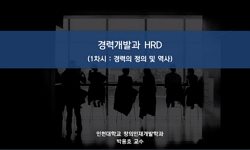This study investigates the announcement effect of corporate investment on the stock price. Investment decision is one of the most important corporate policies for the firm value. Stock price reaction to corporate investment decision depends on the ma...
http://chineseinput.net/에서 pinyin(병음)방식으로 중국어를 변환할 수 있습니다.
변환된 중국어를 복사하여 사용하시면 됩니다.
- 中文 을 입력하시려면 zhongwen을 입력하시고 space를누르시면됩니다.
- 北京 을 입력하시려면 beijing을 입력하시고 space를 누르시면 됩니다.

기업의 투자공시가 주가에 미치는 영향 : 정보비대칭 관점을 중심으로 = The Announcement Effect of Corporate Investment on the Stock Price: Focusing on the Perspective of Information Asymmetry
한글로보기https://www.riss.kr/link?id=A103646853
- 저자
- 발행기관
- 학술지명
- 권호사항
-
발행연도
2016
-
작성언어
Korean
- 주제어
-
등재정보
KCI등재
-
자료형태
학술저널
- 발행기관 URL
-
수록면
23-37(15쪽)
-
KCI 피인용횟수
2
- DOI식별코드
- 제공처
-
0
상세조회 -
0
다운로드
부가정보
다국어 초록 (Multilingual Abstract)
Considering the limitations of previous studies, we extend the sample period to 14 years from 2000 to 2013 and fully examine market responses to investment announcements using event study methodology. Our sample has 1216 investment announcements of 409 non-financial firms listed on the Korea Exchange. Moreover, we employ multiple regression models in the perspective of information asymmetry to explain the announcement effects of investment decisions.
We find significantly positive stock price reactions around corporate investment announcements. For three day event window including the day before and after the announcement we document abnormal equity returns of 0.561%. The regression model including information asymmetry variables such as stock return volatility and momentum has a strong explanatory power. Especially volatility and momentum are only significant variables to explain the change in stock price.
Volatility is defined as the standard deviation of stock returns for 120 days before the investment announcement.
Firms with high information asymmetry are expected to show high stock return volatility. The coefficient on volatility variable turns out significantly positive, which implies that information asymmetry is positively related to the announcement effects of corporate investment on the stock price. Momentum is measured as the difference between 6-month buy-and-hold returns on stock and benchmark index such as KOSPI. If stock prices already reflect the information on corporate investment, we may observe positive prior equity returns and weak announcement effects.
We confirm the negative relationship between momentum and abnormal returns around investment announcements.
Overall, stock prices show stronger responses as information asymmetry proxied by volatility and momentum increases. These findings suggest that information asymmetry is a crucial determinant of the announcement effect of corporate investment.
We have fully examined the announcement effects of corporate investment decisions by expanding sample periods from 2000 to 2013 for robust empirical results and attempted to resolve unexplained investment announcement effects in the Korea stock market. By focusing on the role of information asymmetry, we find that the relationship between the announcement effect of corporate investment and the stock price depends on differential information environment.
Our empirical findings may have some limitations in that only stock return volatility and momentum are employed to proxy for a firm's information asymmetry. It is to be hope that future research using refined information asymmetry measures provides further evidence for the announcement effect of corporate investment decision on the stock price.
This study investigates the announcement effect of corporate investment on the stock price. Investment decision is one of the most important corporate policies for the firm value. Stock price reaction to corporate investment decision depends on the market's assessment of the quality of the investment. If a firm's investment is expected to increase the value of the firm, the stock price tends to show positive reaction. When corporate managers try to exploit investment decisions for their private benefits, investment announcements negatively affect the share price of the firm. Extanct research in Korea does not find significant stock market reactions to corporate investment announcements. Also, factors to explain the relationship of corporate investment decisions and stock prices are different depending on studies.
Considering the limitations of previous studies, we extend the sample period to 14 years from 2000 to 2013 and fully examine market responses to investment announcements using event study methodology. Our sample has 1216 investment announcements of 409 non-financial firms listed on the Korea Exchange. Moreover, we employ multiple regression models in the perspective of information asymmetry to explain the announcement effects of investment decisions.
We find significantly positive stock price reactions around corporate investment announcements. For three day event window including the day before and after the announcement we document abnormal equity returns of 0.561%. The regression model including information asymmetry variables such as stock return volatility and momentum has a strong explanatory power. Especially volatility and momentum are only significant variables to explain the change in stock price.
Volatility is defined as the standard deviation of stock returns for 120 days before the investment announcement.
Firms with high information asymmetry are expected to show high stock return volatility. The coefficient on volatility variable turns out significantly positive, which implies that information asymmetry is positively related to the announcement effects of corporate investment on the stock price. Momentum is measured as the difference between 6-month buy-and-hold returns on stock and benchmark index such as KOSPI. If stock prices already reflect the information on corporate investment, we may observe positive prior equity returns and weak announcement effects.
We confirm the negative relationship between momentum and abnormal returns around investment announcements.
Overall, stock prices show stronger responses as information asymmetry proxied by volatility and momentum increases. These findings suggest that information asymmetry is a crucial determinant of the announcement effect of corporate investment.
We have fully examined the announcement effects of corporate investment decisions by expanding sample periods from 2000 to 2013 for robust empirical results and attempted to resolve unexplained investment announcement effects in the Korea stock market. By focusing on the role of information asymmetry, we find that the relationship between the announcement effect of corporate investment and the stock price depends on differential information environment.
Our empirical findings may have some limitations in that only stock return volatility and momentum are employed to proxy for a firm's information asymmetry. It is to be hope that future research using refined information asymmetry measures provides further evidence for the announcement effect of corporate investment decision on the stock price.
국문 초록 (Abstract)
본 연구는 기업의 투자공시가 주가에 미치는 영향을 살펴보고, 주가반응의 크기를 결정하는 요인이 무엇인지 조사하였다. 대부분의 기존 국내연구에서는 투자공시에 대해 유의한 비정상수...
본 연구는 기업의 투자공시가 주가에 미치는 영향을 살펴보고, 주가반응의 크기를 결정하는 요인이 무엇인지 조사하였다. 대부분의 기존 국내연구에서는 투자공시에 대해 유의한 비정상수익률을 관찰하지 못하였으며, 기업의 투자결정과 주가반응 간의 상관관계를 설명할만한 뚜렷한 결정요인 또한 발견하지 못하였다. 본 논문은 선행연구의 방법론을 토대로 하되 표본기간을 14년(2000년∼2013년)으로 확장하여 투자공시의 효과를 분석하였다. 실증분석 결과, 투자공시 전일 및 후일을 포함한 3일간의 사건기간 동안 0.561%의 유의한 누적비정상수익률을 관찰할 수 있었다. 누적비정상수익률을 설명하기 위한 다중회귀분석에서 기업의 재무 변수로 구성한 모형은 설명력이 없었으나, 정보비대칭 관련 변수를 추가한 모형은 투자공시에 대한 주가반응을 설명할 수 있는 유의한 모형으로 나타났다. 특히 모형에서 정보비대칭 변수로 사용한 변동성과 모멘텀 변수 모두 유의한 설명력을 보였다. 변동성의 경우 누적비정상수익률과 양(+)의 관계를 보여 정보비대칭 정도를 의미하는 변동성이더 큰 기업일수록 투자공시에 대해 주가가 더 강하게 반응함을 알 수 있었다. 또한 공시일 이전 6개월간의 주식수익률로 구한 모멘텀 변수와 누적비정상수익률은 음(-)의 관계를 보여 공시 이전 기간에 투자정보의 가치가 이미 주가에 반영되어 있을수록 주가반응이 상대적으로 더 약하게 나타났다. 이러한 실증분석 결과는 기업의 투자공시에 대한 주가반응이 기업의 재무적 특성보다 정보비대칭과 같은 기업의 정보환경에 따라 결정된다는 것을 시사한다.
참고문헌 (Reference)
1 기현희, "코스닥시장에서 시설투자공시가 주가에 미치는 영향에 관한 연구" 대한회계학회 11 (11): 119-142, 2006
2 김태규, "정보비대칭과 신용등급 변경 공표의 효과" 한국재무관리학회 29 (29): 165-188, 2012
3 최성섭, "자사주 매입공시 효과에 대한 실증연구" 한국기업경영학회 12 (12): 13-29, 2005
4 김태규, "자본투자와 대리인비용" 한국자료분석학회 14 (14): 1051-1062, 2012
5 김범, "신용등급 전망의 정보가치와 신용개선효과" 한국기업경영학회 22 (22): 47-66, 2015
6 심동석, "시설투자공시가 주주의 부에 미치는 영향에 관한 연구" 한국증권학회 8 : 283-332, 1995
7 최정호, "기업의 시설투자와 기업가치에 관한 실증적 연구" 한국경영학회 25 (25): 171-203, 1996
8 기현희, "기업의 시설투자 공시가 주가에 미치는 영향에 관한 연구" 한국국제회계학회 (15) : 1-19, 2006
9 주강진, "공매도 금지 해제공시가 시장가치에 미치는 영향 –금융주를 중심으로-" 한국기업경영학회 21 (21): 63-82, 2014
10 Jain, B. A., "The Impact of Strategic Investment Choices on Post Issue Operating Performance and Survival of US IPO Firms" 35 : 459-490, 2008
1 기현희, "코스닥시장에서 시설투자공시가 주가에 미치는 영향에 관한 연구" 대한회계학회 11 (11): 119-142, 2006
2 김태규, "정보비대칭과 신용등급 변경 공표의 효과" 한국재무관리학회 29 (29): 165-188, 2012
3 최성섭, "자사주 매입공시 효과에 대한 실증연구" 한국기업경영학회 12 (12): 13-29, 2005
4 김태규, "자본투자와 대리인비용" 한국자료분석학회 14 (14): 1051-1062, 2012
5 김범, "신용등급 전망의 정보가치와 신용개선효과" 한국기업경영학회 22 (22): 47-66, 2015
6 심동석, "시설투자공시가 주주의 부에 미치는 영향에 관한 연구" 한국증권학회 8 : 283-332, 1995
7 최정호, "기업의 시설투자와 기업가치에 관한 실증적 연구" 한국경영학회 25 (25): 171-203, 1996
8 기현희, "기업의 시설투자 공시가 주가에 미치는 영향에 관한 연구" 한국국제회계학회 (15) : 1-19, 2006
9 주강진, "공매도 금지 해제공시가 시장가치에 미치는 영향 –금융주를 중심으로-" 한국기업경영학회 21 (21): 63-82, 2014
10 Jain, B. A., "The Impact of Strategic Investment Choices on Post Issue Operating Performance and Survival of US IPO Firms" 35 : 459-490, 2008
11 Chen, S. S., "Investment Opportunities, Free Cash Flow and Market Reaction to International Joint Ventures" 24 (24): 1747-1765, 2000
12 Chung, K. H., "Investment Opportunities and Market Reaction to Capital Expenditure Decisions" 22 : 41-60, 1998
13 Goh, J. C., "Cross-Sectional Variation in the Stock Market Reaction to Bond Rating Changes" 39 : 101-112, 1999
14 Chan, S. H., "Corporate Research and Development Expenditures and Share Value" 26 : 285-276, 1990
15 McConnell, J., "Corporate Capital Expenditure Decisions and Market Value of the Firm" 14 : 399-422, 1985
16 Titman, S., "Capital Investment and Stock Returns" 39 : 677-700, 2004
17 Jensen, M. C., "Agency Costs and Free Cash Flow : Corporate Finance and Takeovers" 76 : 323-339, 1986
동일학술지(권/호) 다른 논문
-
한국수출기업의 수출기업 역량, 수출마케팅전략 실행효과 및 수출 경쟁우위가 수출성과에 미치는 영향
- 한국기업경영학회
- 김정권
- 2016
- KCI등재
-
O2O의 구전의도에 미치는 요인: 사용자 만족과 지속적 사용의도의 매개효과와 성별 조절효과를 중심으로
- 한국기업경영학회
- 이상기
- 2016
- KCI등재
-
브랜드 체험이 브랜드 개성 및 브랜드 자산에 미치는 영향 - 제품군과 소비자 관여도의 조절효과를 중심으로 -
- 한국기업경영학회
- 심현숙
- 2016
- KCI등재
-
내부회계관리제도 검토의견에 따른 이익조정 수단에 관한 연구
- 한국기업경영학회
- 곽지영
- 2016
- KCI등재
분석정보
인용정보 인용지수 설명보기
학술지 이력
| 연월일 | 이력구분 | 이력상세 | 등재구분 |
|---|---|---|---|
| 2026 | 평가예정 | 재인증평가 신청대상 (재인증) | |
| 2020-01-01 | 평가 | 등재학술지 유지 (재인증) |  |
| 2017-01-01 | 평가 | 등재학술지 유지 (계속평가) |  |
| 2013-01-01 | 평가 | 등재학술지 유지 (등재유지) |  |
| 2010-01-01 | 평가 | 등재학술지 선정 (등재후보2차) |  |
| 2009-03-13 | 학회명변경 | 영문명 : 미등록 -> Korean Corporation Management Association |  |
| 2009-01-01 | 평가 | 등재후보 1차 PASS (등재후보1차) |  |
| 2007-01-01 | 평가 | 등재후보학술지 선정 (신규평가) |  |
학술지 인용정보
| 기준연도 | WOS-KCI 통합IF(2년) | KCIF(2년) | KCIF(3년) |
|---|---|---|---|
| 2016 | 1.56 | 1.56 | 1.63 |
| KCIF(4년) | KCIF(5년) | 중심성지수(3년) | 즉시성지수 |
| 1.75 | 1.7 | 2.494 | 0.42 |




 KCI
KCI eArticle
eArticle






